“Ageing, working and living” training program - the pilot experience in Greece and Denmark6/30/2023 The third main result of the Silver project was the design of a training curriculum for managers and HR professionals with the goal of an active aging style and retirement for senior employees. The training programme is structured in three modules as follows: MODULE I - What is needed to create an age friendly workplace MODULE II–Senior employees 55+:Characteristics and the specifics MODULE III – What is needed to design a smooth transition to retirement In Greece, the training was conducted by KMOP–Social Action and Innovation Centre and took place in two online sessions via ZOOM, with a total of 24 participants. The pilot was implemented by the two psychologists, who had attended the “Train the Trainers” training in Slovenia. Most of the participants were CEOs, managers, HR professionals, and NGO staff. Some of them were above 55 years old, while some employees close to retirement participated as well. The first session included a presentation of the SILVER project and its results, followed by the first two modules of the training, while the second one was more interactive, with the implementation of the third module and its activities. Finally, since older workers attended, it was a good opportunity to pilot some of the tools of Intellectual Output 4. All participants were very active during the training and appreciated the content. They also expressed their interest in the other materials of the SILVER project, and the participation of the final phase of the piloting of the audio-visuals and the toolbox (Intellectual Output 4). The feedback questionnaires were very positive and the answers to most of the questions were “Agree” or “Completely Agree” In Denmark, En3karriereheld held the third of a total of four planned and completed workshops at Helicopter Wingon for 23 participants–including 8 with HR and management functions and 15 senior employees from 54-66 years. Total results from the four workshops 19 participated with functions within management and HR.
At the end of the workshop, questionnaires were distributed to the participants, where they especially with crosses have the opportunity to make their experience and benefits known. The overall result shows a very high level of satisfaction with the workshop among HR, managers and senior employees 55+. The majority have gained new insights that contribute to them changing plans both for the near future at work and subsequently in life after work
0 Comments
In France, the concept of retirement pensions first appeared for sailors of the royal navy in the 17th century. However, it wasn't until the end of the Second World War that a general pension system was set up. This system is still in place as of 2023, but has undergone, and is currently undergoing, a series of reforms. From its creation in 1945 to the 1980’s, these reforms focused on expanding the system to all workers and improving pensions, culminating in 1983 with the retirement age changing from 65 to 60.
However, from the 1990’s onwards higher life expectancy and ageing demographics generated an increasing imbalance between retired workers and workers contributing to the pension system. This imbalance, as well as a changing economic environment (particularly a slower economic growth) have led to concerns about the viability of the pension system, resulting in a series of reforms starting in 1993 slowly but steadily increasing the duration of contribution to receive full pension (from 37.5 years in 1983 to 42 years and the minimum legal age of retirement (from 60 in 1983 to 62 in 2010). The 2023 reform is in the same vein as the previous ones from 1993 onwards. In order to guarantee the financial balance of the pension system various changes are planned, among them, the minimum legal age of retirement goes from 62 to 64 and the contribution duration for full pension goes from 42 to 43. In exchange, the reform plans to set up a 1 200€ minimum pension. This increase of the contribution duration and the legal age as well as the seemingly low impact of the new minimum pension have led to opposition and unrest from a substantial part of the population. Finally, the reform might deepen gender inequalities. With the reform, because of the prevalence among women of part-time work and career breaks for childcare, women will have to postpone their retirement more than men to receive full pensions. For example, women will have to work nine additional months compared to only five months for men born the same year, for lower retirement pensions due to, on average, lower salaries. References: https://www.ilcfrance.org/images/upload/pages/16%2009%2014%20retirement%20in%20France%20word%20final.pdf https://www.legifrance.gouv.fr/contenu/Media/files/autour-de-la-loi/legislatif-et-reglementaire/actualite-legislative/2023/plfrss_ecox2300575l_rapport_annexe_cm_23.01.2023_0.pdf https://www.lemonde.fr/les-decodeurs/article/2023/03/16/les-questions-pour-comprendre-la-reforme-des-retraites-petites-pensions-carrieres-longues-et-impact-pour-les-femmes_6163845_4355771.html *Article prepared by Afeji “Ageing, working and living” training program - the pilot experience in France, Romania and Slovenia5/31/2023 The third main result of the Silver project was the design of a training curriculum for managers and HR professionals with the goal of an active aging style and retirement for senior employees. The training programme is structured in three modules as follows: MODULE I - What is needed to create an age friendly workplace MODULE II–Senior employees 55+:Characteristics and the specifics MODULE III – What is needed to design a smooth transition to retirement In France, the pilot was conducted by Afeji. The 13 participants were mostly Directors of socio-medical establishments, Heads of services and HR professionals. All participants appreciated the Silver training and the feedback questionnaires were very positive. The piloting in Romania was conducted by the European Association for Social Innovation and was structured in two online sessions. The 12 participants were HR professors & students, HR professionals, NGO staff. The training sessions were well received by the participants, who appreciated the SILVER initiative and expressed their interest in finding out more about the project’s materials and results. In Slovenia, the pilot was conducted by CIK Trebnje with 17 managers and HR professionals from business and healthcare. All the participants were very satisfied with the theme of the Silver event, as they found it very relevant and useful. Participants really liked the way we presented the theory through practical exercises,
examples- they liked the fact that most of the time was dedicated to practical work. Get over the invisible gap in welfare in one piece, and get ready for senior life. Not everyone finds it easy to say goodbye to colleagues and the daily experience of having made a difference today. Many experience - like another 'Paul alone in the world' - that the reality after the farewell reception does not every day match the rosy tale you enter, that now you have to "just enjoy your retirement". Some stepping stones are needed for the radical life change. Here are three that your workplace can put in place fairly easily. A period for reflection for the 60+. Senior guidance and group discussions. A senior conversation day where 60+ people get good input about the transition from the job and the opportunity to discuss their own ideas and be inspired in small conversation groups. To either continue at the job for a few more years or prepare for the transition from the job. Dip your toe in the water before jumping from the cliff Get an agreement for a smooth transition with fewer working hours and exploration of the new life phase. In a slightly cheekier version, you can apply for leave and try yourself by e.g. in an internship as a volunteer for a few free afternoons or as an entrepreneur or new education for 3-6 months on unemployment benefits and with an agreement that the job is still yours. Re-enter as a substitute Get a 'Substitute database' for seniors who quit. A golden vein for the workplace that comes unscathed through illness and extra busyness. And for the full-grown seniors who can revisit colleagues for a while, and relive the rush of using their talents and experience, and then just supplement their pension with extra salary. *Article written by our Danish partner, Poul-Erik Tindbæk, from Enkarierre.
As we live longer and we have had more fresh years, in fact a new phase in life between adult and old, where many continue to be at the peak of their performance for many years, the persistent retirement myth (that as a pensioner you no longer have to give - but simply get and enjoy) has come under heavy fire. Not least from a multitude of full-grown seniors who will continue to contribute with their talents and experience and daily experience that you are part of a community and that you are still needed. As a sailor and professor from Denmark, Per Schultz Jørgensen, has put it: "The individual, in a community with others, is obliged to do something. You're part of the crew, you're not a passenger." That even if you "sign off" from working life, you have not become a passenger who just has to enjoy your retirement. You are still part of communities locally and globally, and still part of the crew that can give a nap every now and then. One of the strongest and most beautiful examples of how full-grown seniors after their last day on the job continue to contribute and pour out their experience and skills, especially targeted at future generations, comes in a myriad of forms. For example, known as "School Friends", where a senior contributes as an additional adult helper in a school class for the youngest students. From the beginning, the aim has been to create, or rather restore, good relations between the younger and older generations. Retired seniors have a good opportunity to give the children their full attention, as they often have the time and do not have the obligations that the parents have. The common denominator of the different stories is precisely that you are in the process of giving back everything you have been given. Paying back your experience dividend. But also the volunteer seniors benefit greatly from the role of "school friend". The attention you give to the children, you get a thousand fold back. For some, it gives meaning to life. For others, including those who do not have grandchildren of their own, it fills some important emotional needs. In addition to the fact that seniors often have more time and better conditions to give children and young people their full attention, the American author Jonathan Rauch has found what makes seniors extra suitable for being adult friends and mentors for young people on their way in life. In the book "The Happiness Curve. Why Life Gets Better After 50", Rauch concludes that with age you move away from individual competition and ambition and towards good social relationships and care for others. All the social capital invested in each one throughout life can now be paid out or repaid as a kind of experience dividend to one's loved ones and to future generations. What the vast majority of grandparents and seniors are already doing to the fullest extent within the families. For the vast majority of seniors, over an often protracted adjustment period after the last day on the job, they find out about their role and activity radius in the new phase of life. The common denominator of the different stories is precisely that you are in the process of giving back everything you have been given. The visible stories in the associations and the stories invisible to the public in the families and in the neighbouring communities. Based on their own strong experiences, a few role models have put words and headlines on paths to what the lives of many full-grown seniors are all about after children and employment. Adventurer and author, Troels Kløvedal, Denmark, who himself has found his way on the world's seas, has in his book from 2004, put into words what for many seniors has turned out to be a guide to what life after children and employment is all about: "... Men who have reached the age where you know you have been given the whole world, and who must therefore realize that the next pleasure lies in giving it all away again." Article by By Poul-Erik Tindbæk ( en3karriere , Dennmark)
In your opinion, what are the needs of senior workers and young retirees? The first need is administrative. When I start working with a group, I ask them what they want, their first wish. Most of them don't know where to start, where to go, which organisations to contact. This creates uncertainties for the future, especially concerning the date of departure and financial resources. This is true whether the person's career path is linear (a single employer) or not, and whatever their status (executive or non-executive) or sector of activity (private or public). They find the calculation of their rights quite complex. The people are also in various situations: for some, retirement is chosen, for others it is imposed, or even imposed because of their personal situation (early retirement to become a family carer, health problem, employer's request). These people ask for a lot of practical advice, or organisations, or people to turn to. They ask themselves: what to do with their free time? We give them some answers: retirement allows you to have time for yourself, for your family and friends, to do activities. Many people ask themselves what will they do next? This brings up the fear of emptiness after leaving their working life. Sometimes people go into overdrive to fill the diary, for fear of loneliness or boredom. This represents one in two people. Especially people for whom work took up all the space in their daily lives. Their only stable reference point is work and its rhythm. This situation is generally a source of stress. One third of people are not preparing for retirement and are waiting for support. What advice could you give to future retirees? 1. To be accompanied in the psychological mechanism of this transition, because it is an upheaval. It can be stressful, it's a big stage in life, which I often compare to adolescence. It is a question of rebuilding one's identity, because one changes status (from worker to retiree). The image that they have of themselves and that society may reflect is being prepared. It is a step towards ageing, which can create anxieties (supposedly linked to a loss of autonomy). This can lead to a reshuffling of family dynamics for couples, hence the importance of good communication, also with relatives. 2. We advise practical things: finding links to avoid loneliness and isolation, voluntary work, associations, activities. 3. For finances: we advise to budget as much as possible, and if necessary to get help from social workers. 4. To cope with change, you need to be very adaptable. It's better when it's chosen. It is also necessary to anticipate with the employer, which is ideal. Phased retirement can be a good transition, which will be smooth. The feeling of usefulness is also very important for future retirees, and many need to feel useful even after retirement. Building on people's specific interests to find activities after retirement, and creating a sense of continuity between before and after to avoid a break. 5. You have to start creating reference points before leaving, which will be put in place afterwards, such as activities, an association. I ask them about the meaning people want to give to retirement to help them find what will be best for them. For some people, retirement is still a taboo subject. They don't talk about it and therefore don't prepare for it. My aim during these groups is to get them talking, to get their emotions flowing and to get them to start thinking and taking certain steps (former colleagues, colleagues, family, friends, etc.). I may advise them to get more personalised and individual support because not everything can be discussed in a group. What advice could you give to employers? The first piece of advice would be to be able to orientate future retirees or to organise information meetings on rights and duties within the structures.
The second thing would be to have time with an external facilitator to accompany the transition to retirement, so that they can leave under good conditions. A final piece of advice could be to set up workshops to discover activities (sport, creative hobbies, taking time to look after oneself, etc.) in order to show them what they can do. The key is preparation and anticipation, even if there is no miracle formula! Between 20th and 23rd of September 2022, CIK Trebnje hosted partners from 6 countries (Denmark, France, Greece, Portugal, Romania, Great Britain) within the European Silver project. During the 4-day Short-term joint staff training event Train-the-trainers on SILVER course for HR 15 participants gained knowledge about employees aged 55+, about ways to encourage them to stay in the work process in the third age or to enable them to have the easiest possible path to retirement. We shared our experiences and acquired knowledge about age-friendly workplaces and prepared learning materials for conducting pilot training for managers and HR at the beginning of next year.
At the beginning of the year 2023 the participants of this training will conduct a pilot training for managers and HR in their respective countries. Training will cover topics like inclusion of older employees in the work process, age-friendly workplaces and guiding employees 55+ through the retirement process. The topic is very extensive, it also includes raising awareness of stereotypical notions of the seniors in the work process. The pilot training will be supported by materials on a theoretical and practical level. We invite interested employers and HR to apply now. In parallel, the partnership will also be preparing a toolbox to promote a career in the third age, which will cover visual materials with exercises and interactive resources - for company managers, HR departments, career experts and educators. With the presentation of the manual and the achieved results, we will conclude the project in August 2023. Author Jasmina Pakiž, CIK Trebnje Project manager |
|
This website has been accomplished during the project "SILVER: PROMOTING A CAREER IN THE THIRD AGE", Grant Agreement no. 2020-1-UK01-KA204-078907, implemented with financial support of the European Commission by the Erasmus+ Programme.
This publication reflects the views only of the author, therefore the European Commission cannot be held responsible for any use which may be made of the information contained therein. |

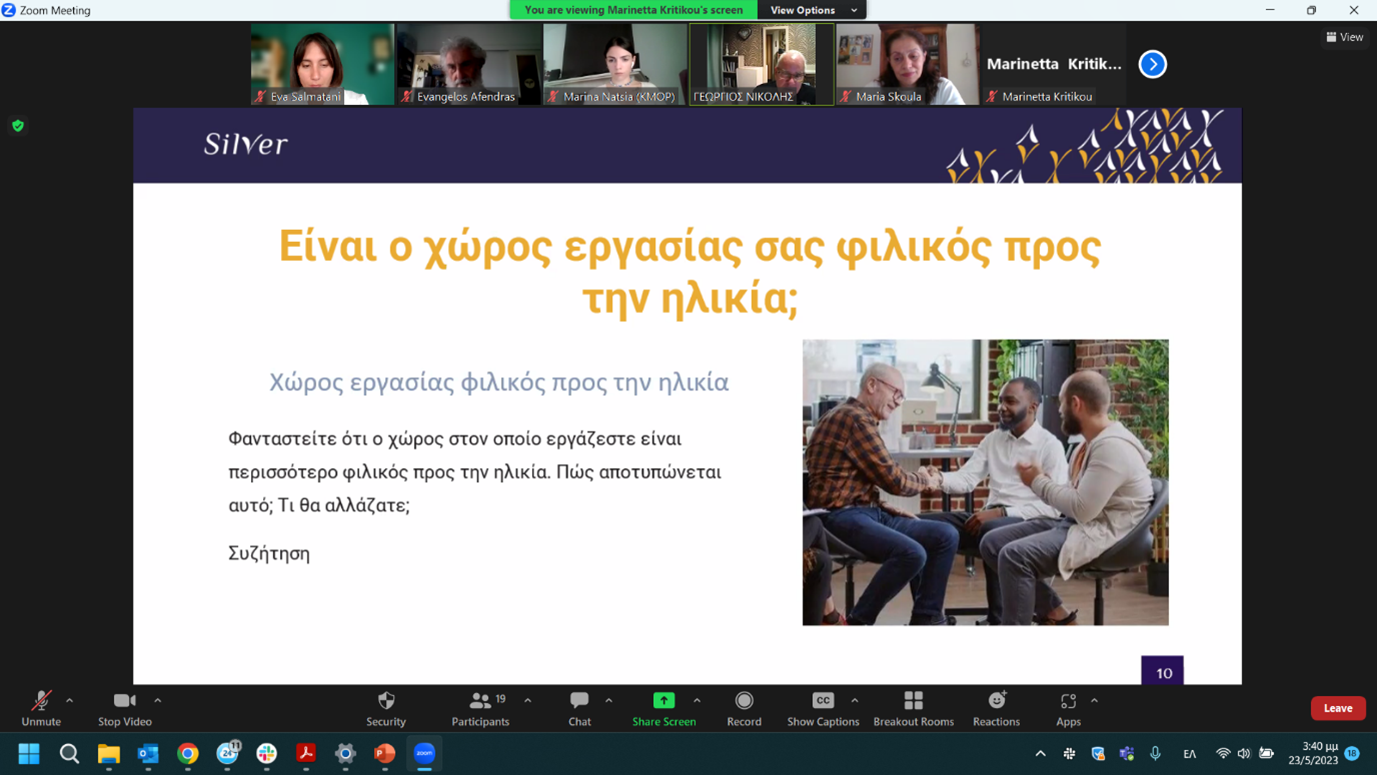
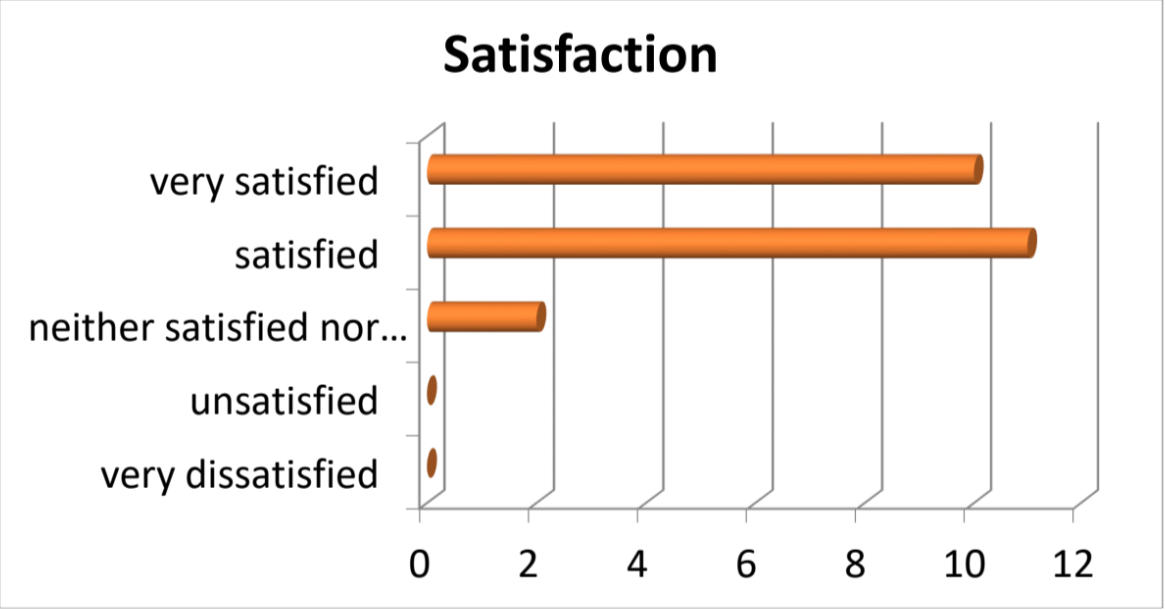

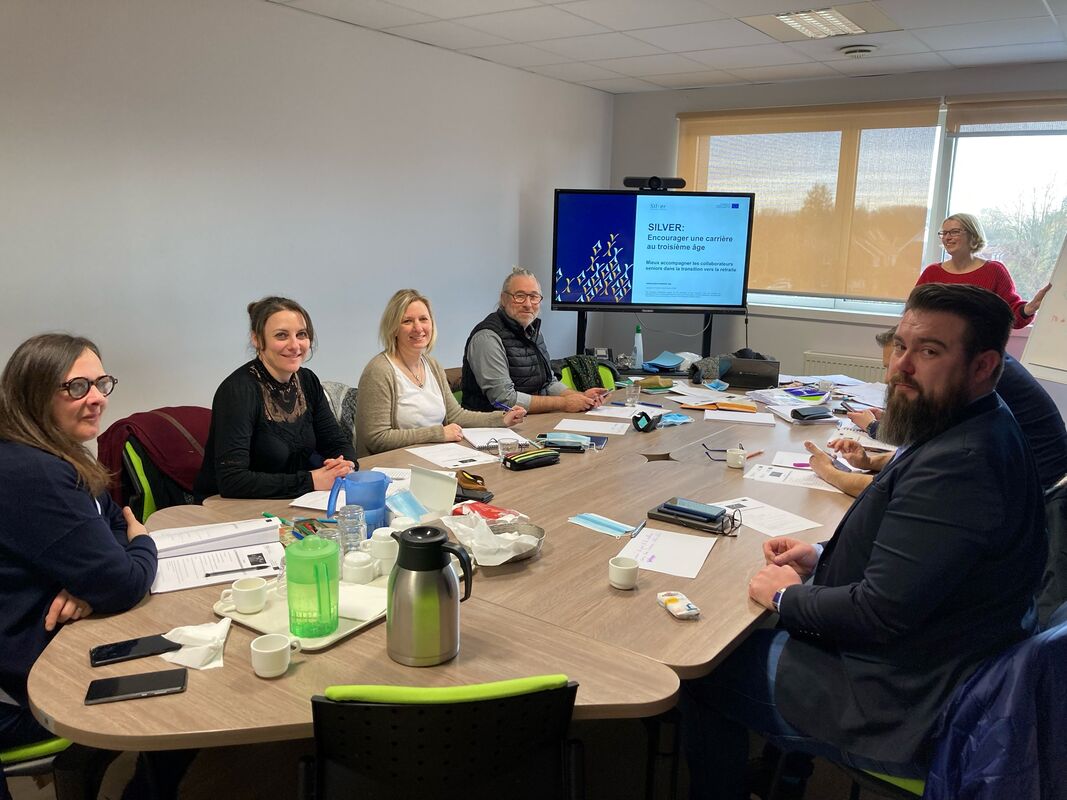
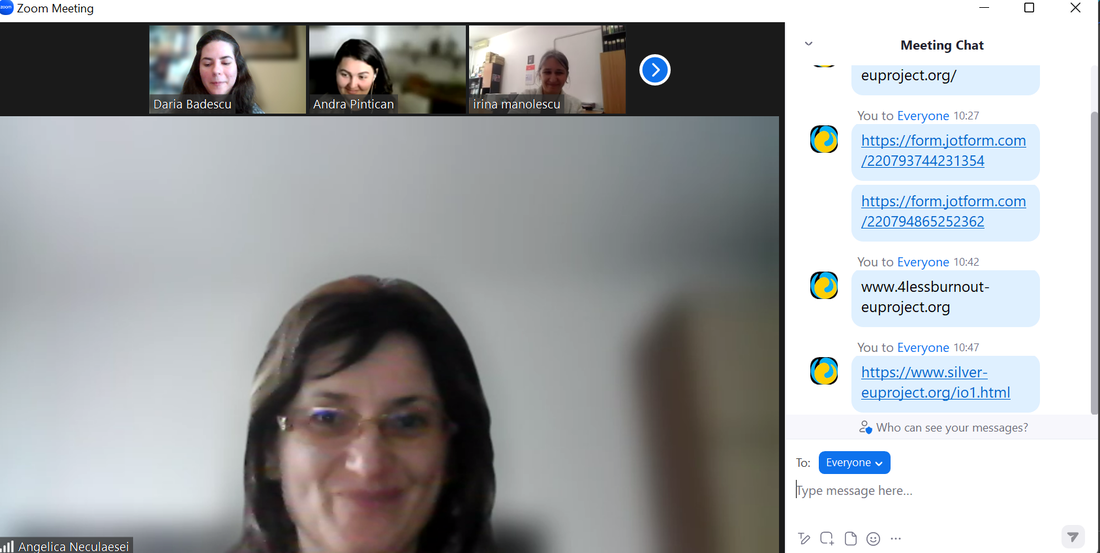
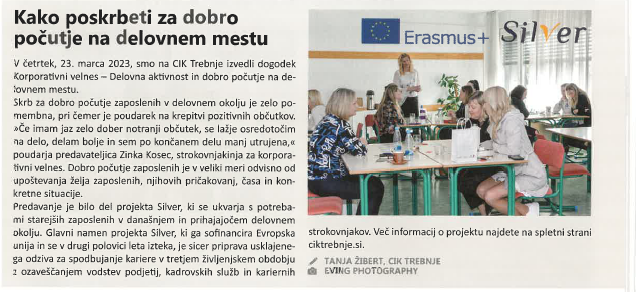


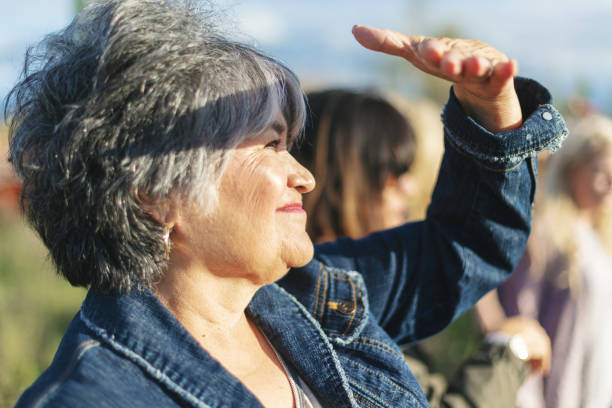
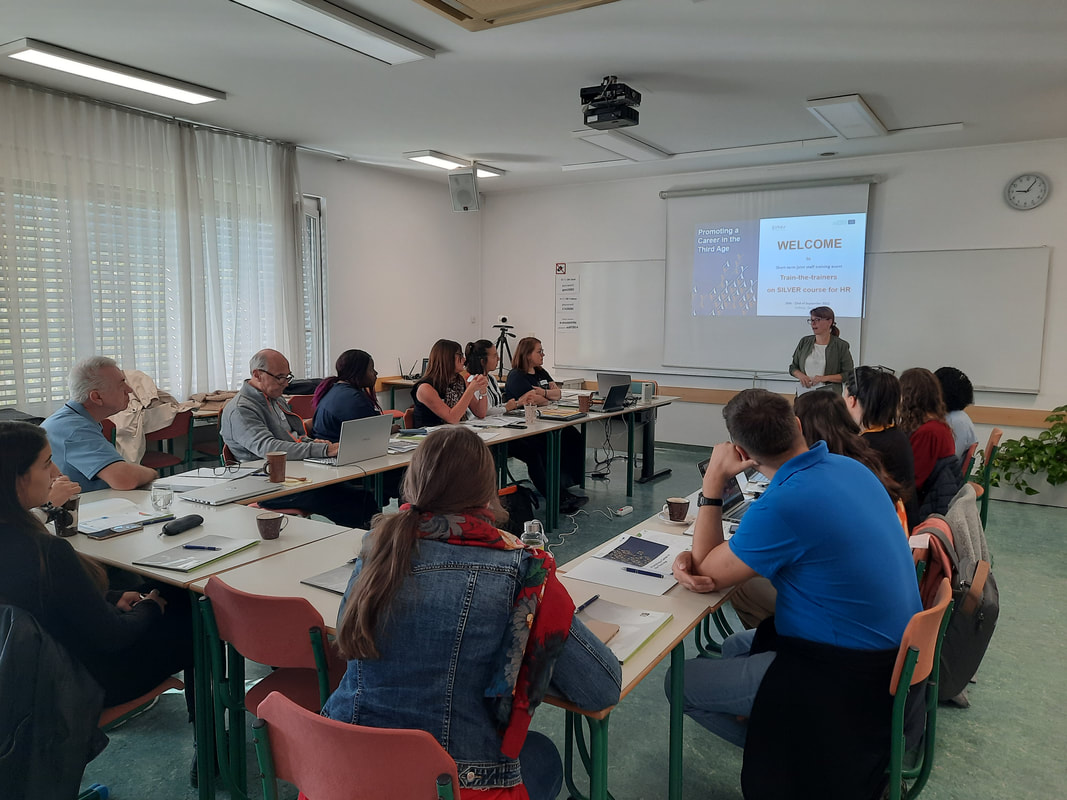
 RSS Feed
RSS Feed
